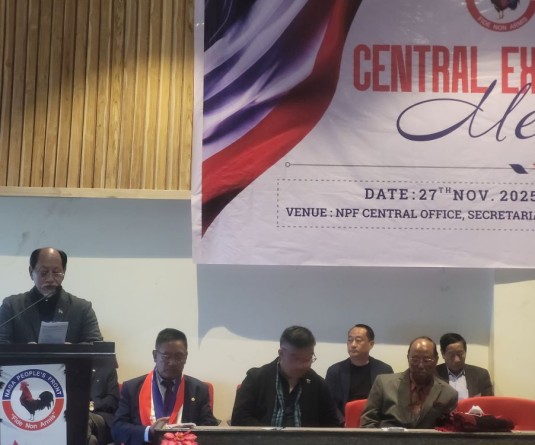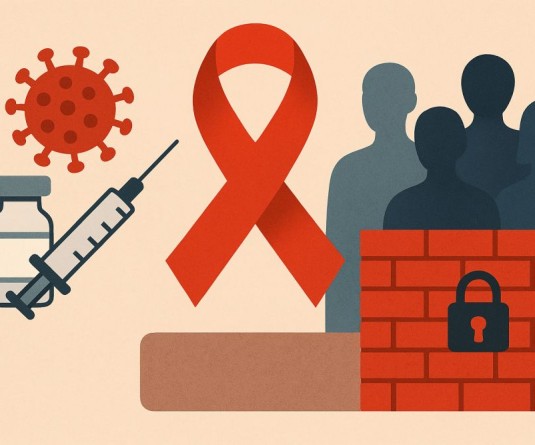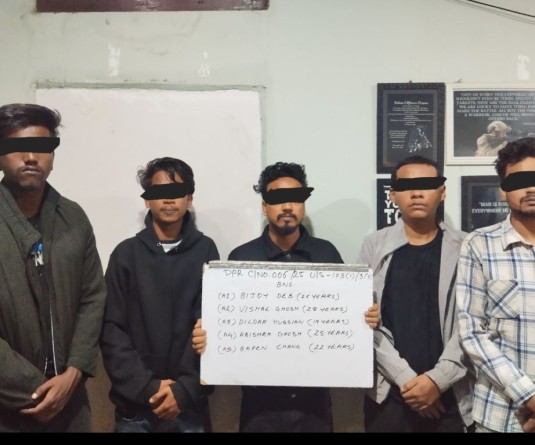
Wokha, April 25 (DIPR): The Board of Directors of the Department of Land Resources led by Director Mhathung Yanthan and accompanied by Joint Director Kuryie Peinyue, Deputy Director & Supervisory Officer Albert Ngullie, Deputy Director A. Pangjung Jamir and Deputy Director C. Vanchamo Ngullie toured Wokha district for scheduled monitoring and field inspection programme from April 10 to 12.
On April 10, a marathon meeting with Wokha staff was held where WDT of IWMP-I to IWMP-X concerned made a PowerPoint presentation. Explaining the motive of Integrated Watershed Management Programme (IWMP) and its declaration as National Flagship programme, the Director pointed out various corrections and rectifications required in the implementation approach.
Meanwhile, acknowledging the efforts made by the staff of Wokha for successfully carrying out the project, he requested the staff to be more responsible and put more efforts to be at par with National level, but most importantly for the benefits of watershed community. The team along with DPO and staffs later headed to Yikhum Village Project Site and camped for the night.
On April 11, the team visited project sites of Meshangpen, Tsopo, Chudi, Longtsung, Morakjo, Mekokla and Akuk villages. On April 12, they visited Lio Longidang/Longtseri and ended the tour program at Pangtong Village project site. In all the visited watershed villages, an official meeting was held at the village with Village Councils and project functionaries such as Watershed Committees, farmers and SHGs, followed by field inspection.
During the official meetings, Director Mhathung Yanthan spoke on ‘how to uplift rural economy through IWMP and to do away with traditional jhum practices’ and further requested the watershed community to be more dedicated while acknowledging their active participation that has made the Department proud.
Joint Director Kuryie Peinyue also pointed out that it is only through unity that the way to development is paved. He therefore urged upon the gathering to be united to bring any developmental changes in the society. Deputy Director Albert Ngullie, as the supervisory officer of Wokha requested the watershed community to be more participatory and encouraged the farmers to come forward in addressing their needs and difficulties. Deputy Director Pangjung citing example of his village on rubber farming shared the do’s and don’ts in the techniques of rubber plantation.
Deputy Director C. Vanchamo Ngullie, who was then the DPO during the first implementation of IWMP in Wokha, specifically marked the development in progress which is now entirely a different picture than it was five years ago. Calling upon the watershed community to keep up the pace of transformation, he challenged the watershed community to what extent they could do to bring a wave of change in Nagaland through IWMP.
At Yikhum Village, it was reported that, IWMP was implemented when the village was undergoing a crucial socio-economic period. Today, IWMP is the talk of the village, which has ultimately revived the youth to work culture. At Lio-Longidang and Longtsiri Village, it was revealed that there is now only sizeable jhum land after implementation of IWMP, and tea plantation has remarkably improved the economy of the community. At Pangtong Village, jhum yield sustained only a quarter of year and with no other avenues for livelihood, they were entirely dependent on others. Today, with the implementation of IWMP, many livelihood avenues have been created and their livelihood activity is now concentrated within the village.






